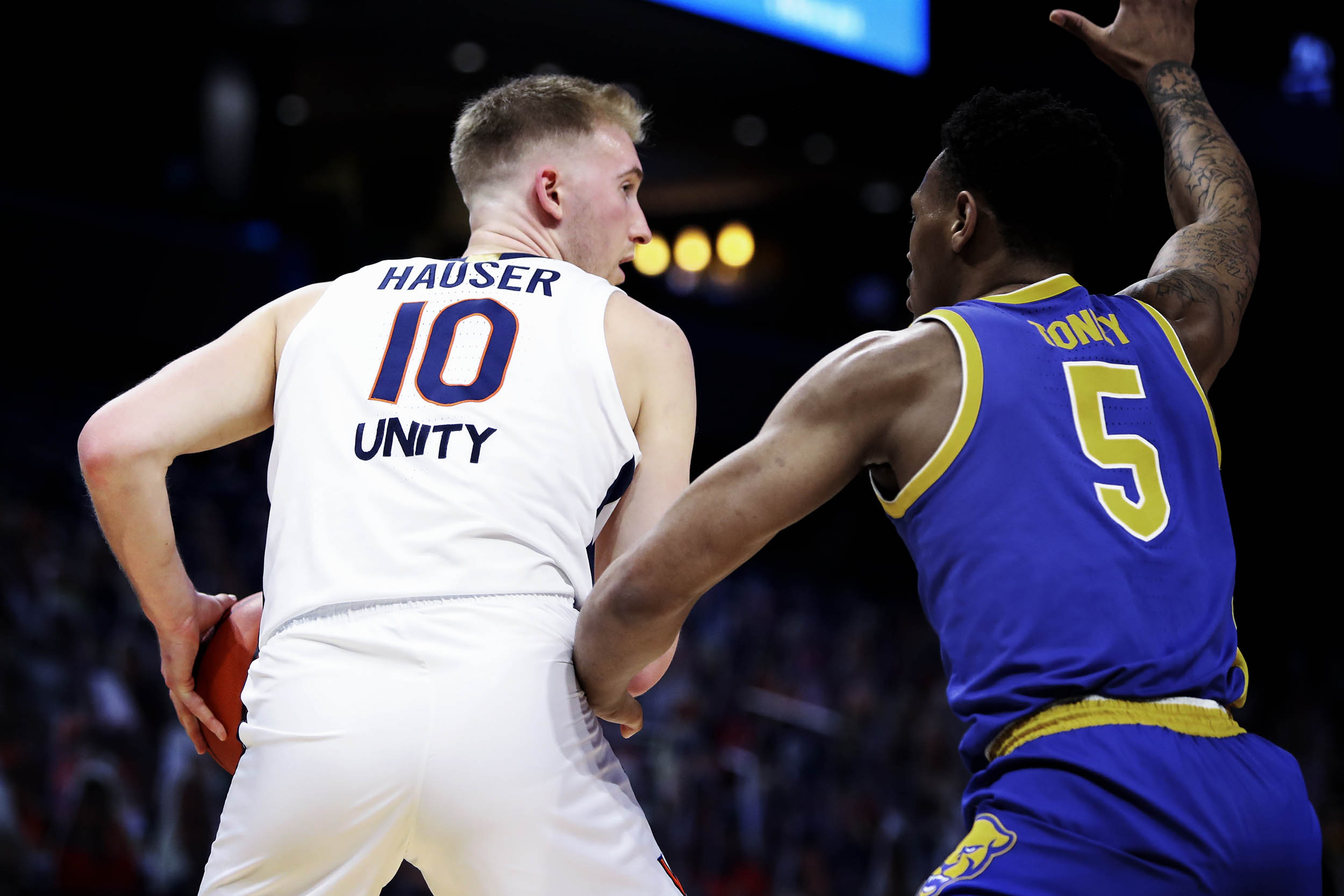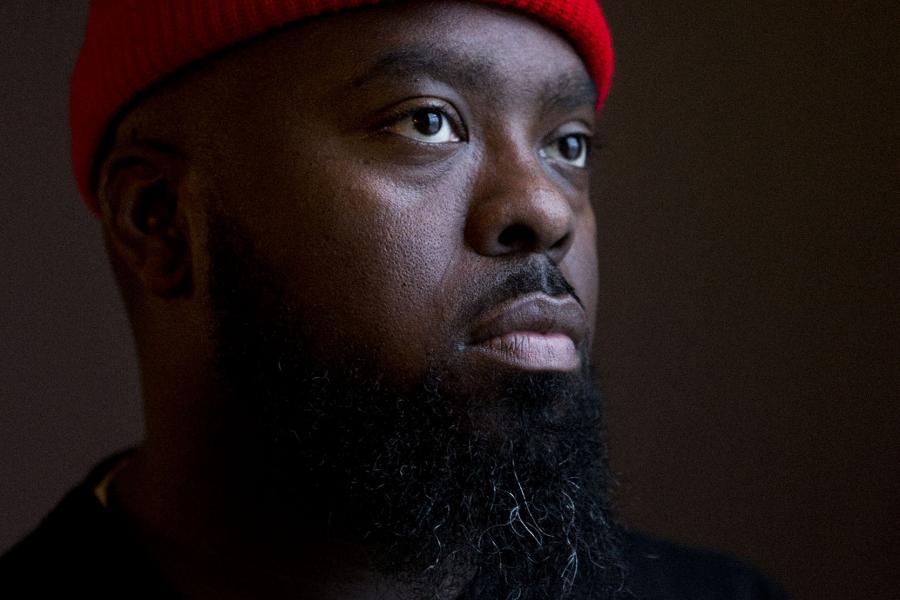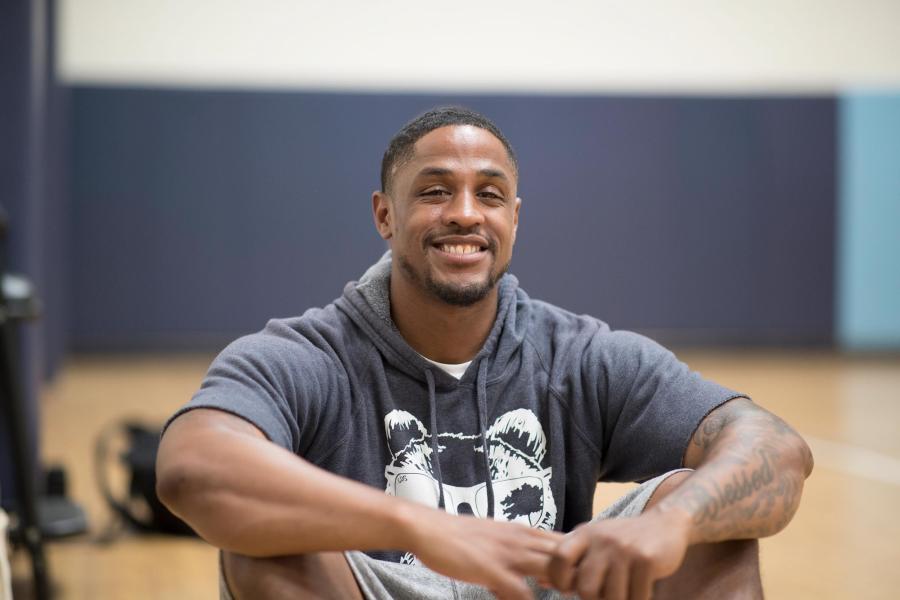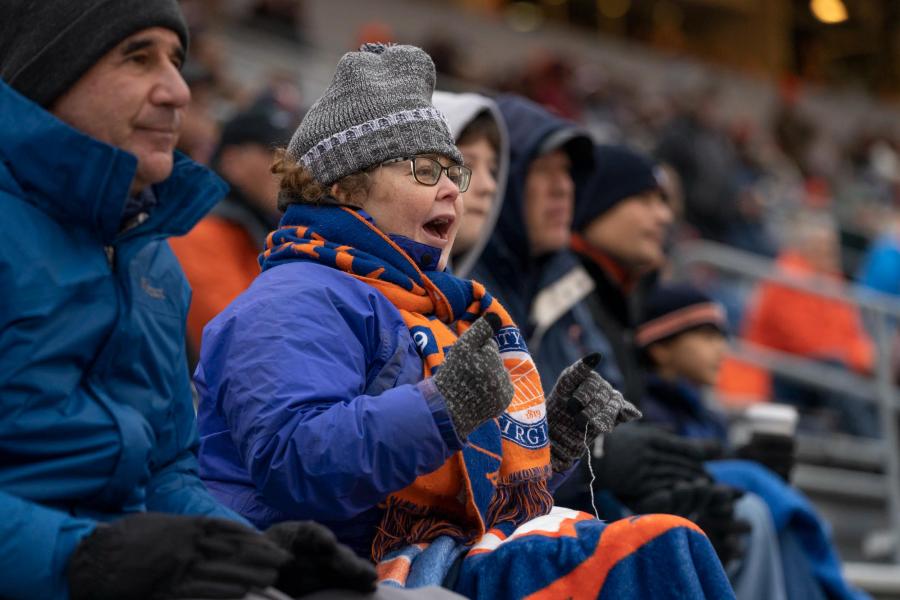When Sam Hauser hit the college basketball transfer market two years ago, University of Virginia head coach Tony Bennett pounced.
Sure, Bennett loved Hauser’s size, 3-point shooting ability and the fact that he was a fellow Wisconsin native and son of a coach. But he was also drawn to many of his intangible qualities.
Interestingly, some of those qualities are also what stood out to UVA School of Education and Human Development associate professor Paul Harris when he recruited Hauser to his research team last spring.
Harris’ work focuses on improving the college and career readiness process of underserved students, promoting the identity development of Black male student-athletes and facilitating the empowerment of anti-racist school counselors.
Every year, undergraduate students from across Grounds apply for the one or two spots on Harris’ team, which also includes two graduate students. If accepted, they receive academic credit in addition to gaining invaluable hands-on research experience.
Harris said selecting Hauser – whom he had gotten to know through two of his courses – was an easy choice.
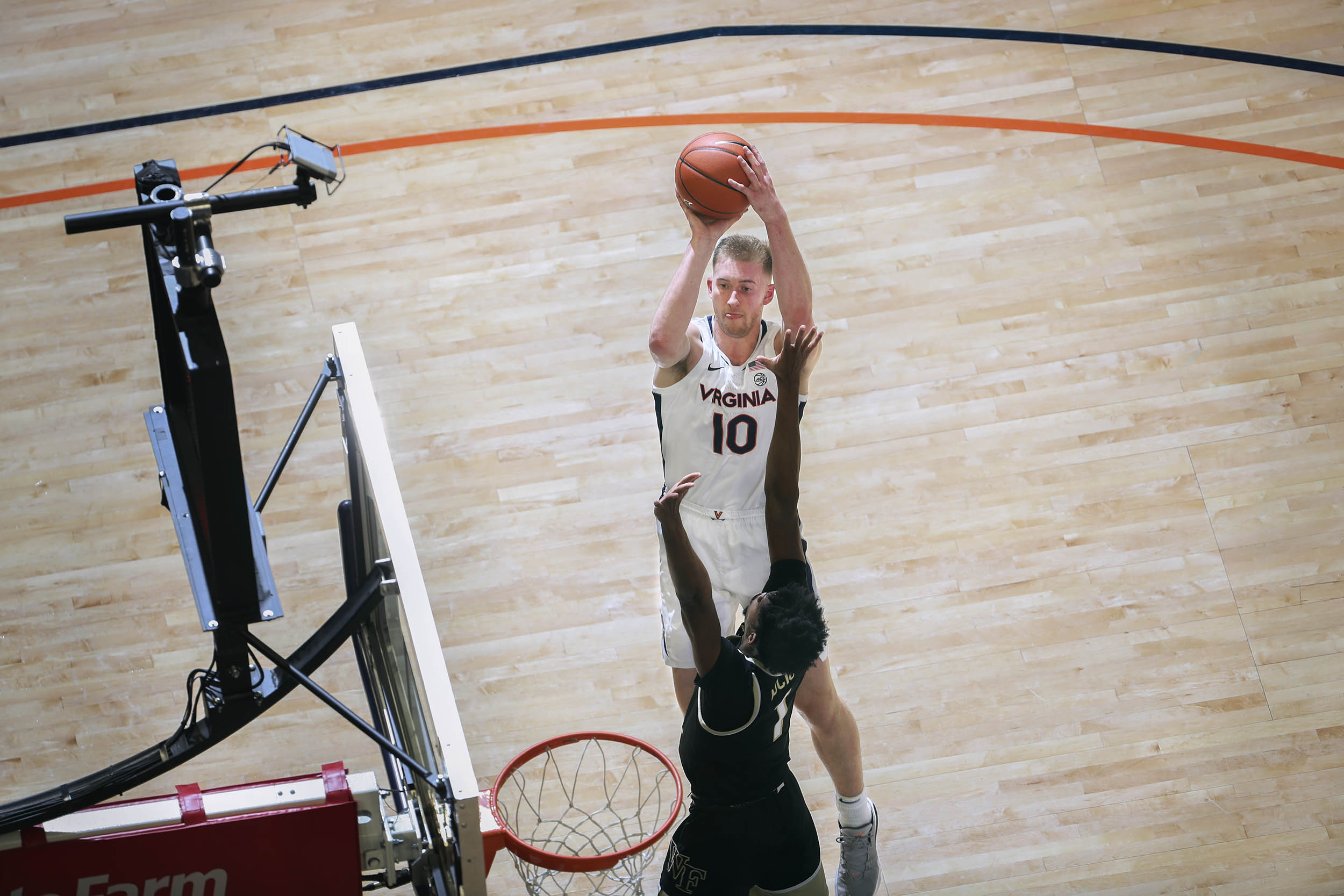
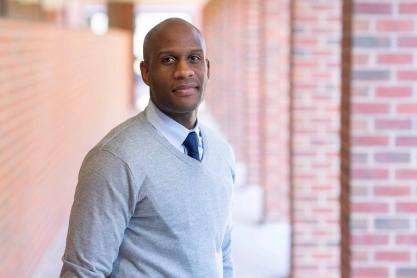

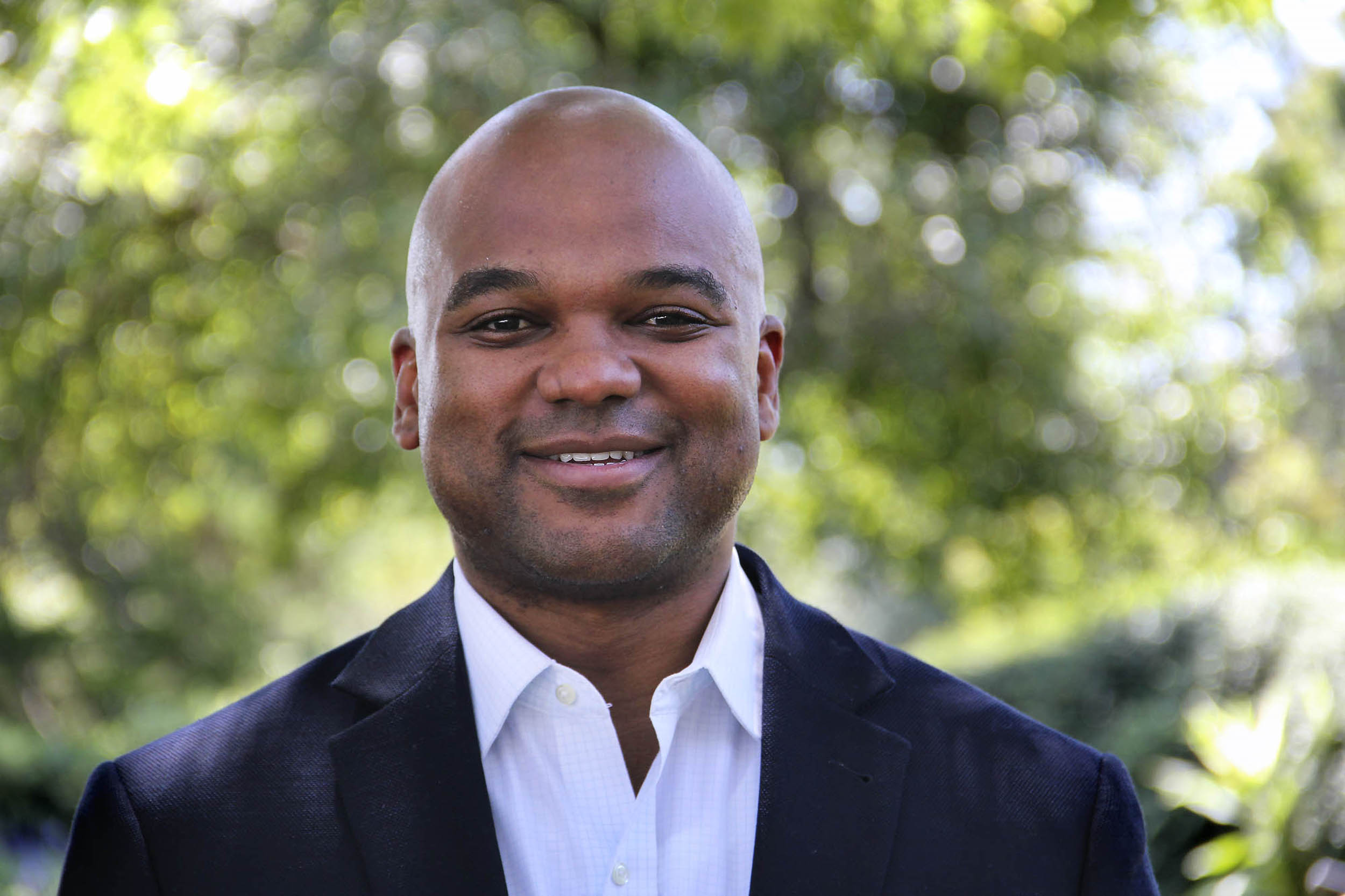

.jpg)
